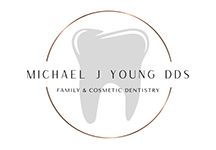 If you grew up like most Americans, your parents probably warned you that eating too much sugar would “rot your teeth.” As a concerned parent, you’ve probably found yourself admonishing your own children to limit their sugar intake or run the risk of developing cavities. Unfortunately, reducing the amount of what scientists call “free sugars” (sugar, honey, fruit concentrates, and other sweeteners that are added to processed foods) can be difficult in today’s culinary environment. Current research from the Centers for Disease Control and Prevention shows that the bulk of Americans’ free sugar intake comes from foods and drinks consumed in the home. Clearly, the choices you make at the grocery store can have a huge impact on your family’s oral and general health. In today’s blog, Lafayette LA family dentist, Dr. Michael J. Young, provides the tools you need to make informed shopping choices and improve the long term health of your family’s smiles.
If you grew up like most Americans, your parents probably warned you that eating too much sugar would “rot your teeth.” As a concerned parent, you’ve probably found yourself admonishing your own children to limit their sugar intake or run the risk of developing cavities. Unfortunately, reducing the amount of what scientists call “free sugars” (sugar, honey, fruit concentrates, and other sweeteners that are added to processed foods) can be difficult in today’s culinary environment. Current research from the Centers for Disease Control and Prevention shows that the bulk of Americans’ free sugar intake comes from foods and drinks consumed in the home. Clearly, the choices you make at the grocery store can have a huge impact on your family’s oral and general health. In today’s blog, Lafayette LA family dentist, Dr. Michael J. Young, provides the tools you need to make informed shopping choices and improve the long term health of your family’s smiles.
Research Links Reduced Dietary Sugar to Fewer Cavities
Recently, researchers at Newcastle University, in conjunction with the World Health Organization, reviewed over 60 years of research and concluded that when 10% or less of a person’s daily calorie intake comes from free sugars, the risk of developing tooth decay drops dramatically. According to Dr. Young, the particles of sugar left behind after consuming sweetened foods and drinks provide nourishment for S. mutans, the species of oral bacteria responsible tooth decay and cavity formation. By reducing the amount of sugar you consume, you limit this bacteria’s food source, thus minimizing its ability to damage your teeth.
Tips for Smile Smart Shopping
When it comes to making the switch to a healthier, reduced sugar diet, moderation is important. Instead of abruptly getting rid of all the sugar in your house, try incorporating one of these simple strategies the next time you go grocery shopping:
- Instead of buying fruit-flavored yogurt cups or on-the-go yogurt tubes, choose string cheese or pre-cut cheese cubes. Cheese contains all the calcium of sweetened yogurt and none of the added sugar.
- Instead of buying a six-pack of soda pop, opt for club soda and 100% fruit juice. You and your family can experiment making your own refreshing, lower-sugar fizzy drinks at home.
- When all else fails, read the labels. If your kiddo just can’t start the day without a bowl of cereal, compare labels and choose a brand of cereal with fewer grams of sugar per serving.
Understanding Unhealthy “Healthy” Foods
Although manufacturers are held to stringent standards regarding labeling, food labels can still be misleading. Just because a product is organic, all-natural, fat free, or contains 100% daily value of vitamin C, doesn’t necessarily mean it’s good for your smile. In fact, many foods marketed as “healthy” contain as much or more sugar than their conventional counterparts. For instance, granola bars, granola cereals, gummy fruit snacks, certain peanut butters, and fruit flavored yogurts are very high in sugar despite their reputation for being healthy choices. Always read nutrition labels and opt for foods and drinks that have fewer grams of sugar per serving.
About Michael J. Young, DDS:
Even people with very healthy diets should attend regular checkups and cleanings with a caring family dentist. Dr. Young and his staff look forward to helping families in Lafayette, LA and surrounding communities enjoy optimal oral health. Schedule your next appointment by calling (337) 237-6453.

